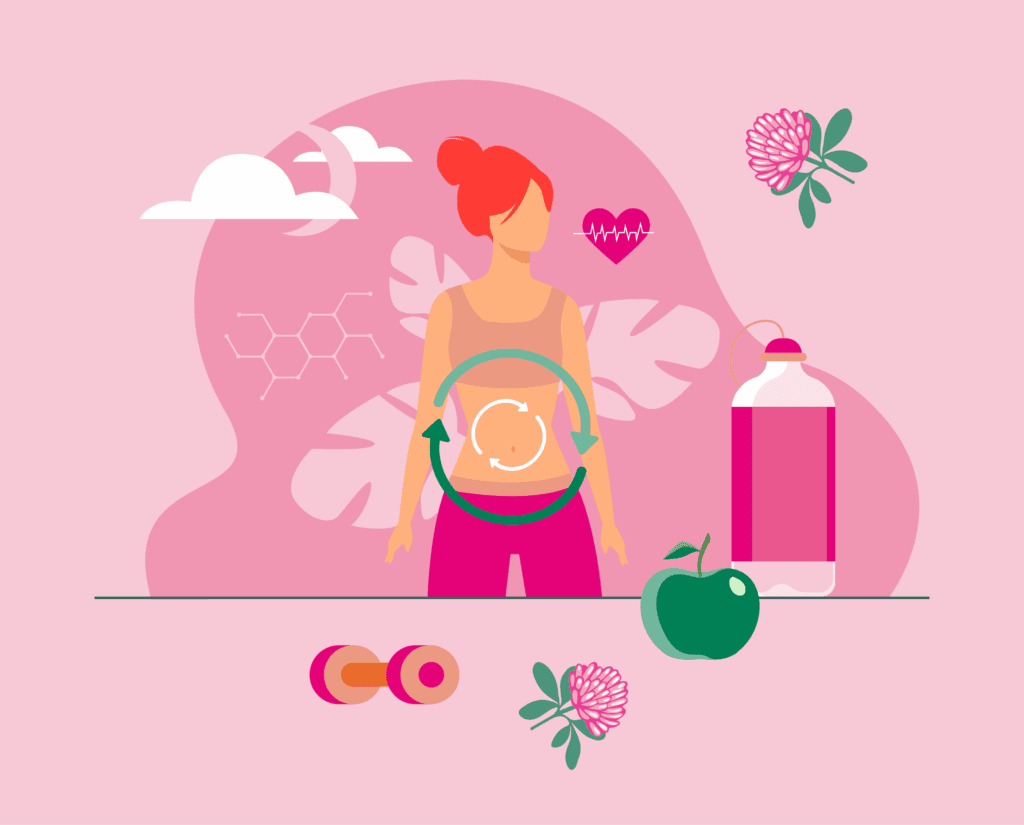
Perimenopause isn’t a crisis. It’s a chemical shift that happens to every woman towards the end of her fertile years.
And for millions of women in their late 30s and early 40s, it starts without warning – well before anyone dares to say the word “menopause.” You may still be getting regular periods. You may feel far too young. But the signs are creeping in: disrupted sleep, creeping anxiety, brain fog, and a sense that something is off, and it’s not just stress.
Most women don’t see it coming. And that’s a problem. Because perimenopause – the 4 to 10-year phase before menopause – can derail your physical, mental, and emotional bandwidth long before hot flushes ever arrive.
It’s not your imagination. Your body is changing. Here’s what’s really going on and what you can do to take back control.
What’s Happening in Your Body?
Three key changes are happening at the time of perimenopause.
- Retiring Ovaries: The level of our hormones fluctuates, particularly the hormone oestrogen, which gives us our feminine characteristics, falls significantly as the ovaries begin to wind down.
- Nutritional Deficiencies: Important nutrients necessary for normal brain chemistry and hormone function are at an all-time low, sending us into economy mode, making it hard for our brain or hormones to function.
- Belly Fat: Plus, our metabolic rate slows down, that’s the rate that our body normally ticks over, making it difficult for us to consume our usual diet without gaining weight!
Women usually hear about Hormone Replacement Therapy (HRT) but they are often not familiar with alternative options like the Natural Hormone Rebalancing Protocol, N-HRP, which has helped tens of thousands of women manage both perimenopause and menopause naturally.
Here are some of my top recommendations to manage naturally, coming from Femmar’s Natural Hormone Rebalancing Protocol, N-HRP.
Upgrade Your Food Nutrition
Research indicates that hormonal balance can be affected by the levels of nutrients in our body, and it’s widely acknowledged in the medical literature that women often have low levels of important nutrients, including magnesium, zinc, B vitamins, vitamin D, calcium and essential fatty acids. Getting nutrients back into an optimum range has a positive influence on brain chemistry and hormone function. Plus, consuming a diet rich in plant polyphenols, including fresh fruit and vegetables, especially green ones, has a hormone moderating effect.
Consume Daily Phytoestrogens
Phytoestrogens are nature’s oestrogen harmonisers. Consume phytoestrogens throughout the day and evening to satisfy the needs of oestrogen receptors in our cells. These plant foods have a molecular structure so like our own oestrogen, we can fool the brain into thinking we have normal levels of oestrogen again resulting in the thermal surges we know as hot flushes and night sweats disappearing altogether. They can be found in everyday foods like soya, flax seed, and supplements of red clover. Check out Femmar’s free Phytoestrogen Food Guide, a comprehensive understanding of phytoestrogen consumption.
Take Well-Researched Supplements
As much as we try, it’s not always possible to achieve all the nutrients we need by diet alone. In fact, red clover isn’t available in our food. That’s why we recommend scientifically based supplements like Promensil, that support your body nutritionally. Not all supplements contain what they say on the label so it’s important to make wise and informed choices taking products that have been through clinical trials and been shown to be both safe and effective.
Keep Moving
Access strength-building movement guidance – including strength training, moderate cardio, balance and flow, and functional fitness – to help balance insulin, oestrogen and your circadian rhythm to keep you energized and metabolically active.
Practicing Calm
Less stress, more hormonal harmony. Get inspired to use meditation to lower cortisol, regulate insulin, and support the calming side of oestrogen. Learn about small shifts in presence – through breathwork, stillness and reflection – to help lower cortisol, support insulin balance, and keep oestrogen steady, one mindful moment at a time.
Taking these tips on board can help relieve your symptoms, leaving you feeling happier, more focused, less irritable and much more like your old self.
Maryon Stewart is the author of Manage Your Menopause Naturally and 27 other books. A world-renowned healthcare expert, she and her team have helped tens of thousands of women around the world overcome peri/menopause symptoms without using drugs or hormones. Go to Femmar to find out more about N-HRP and join the Femmar Community.
